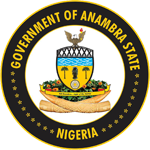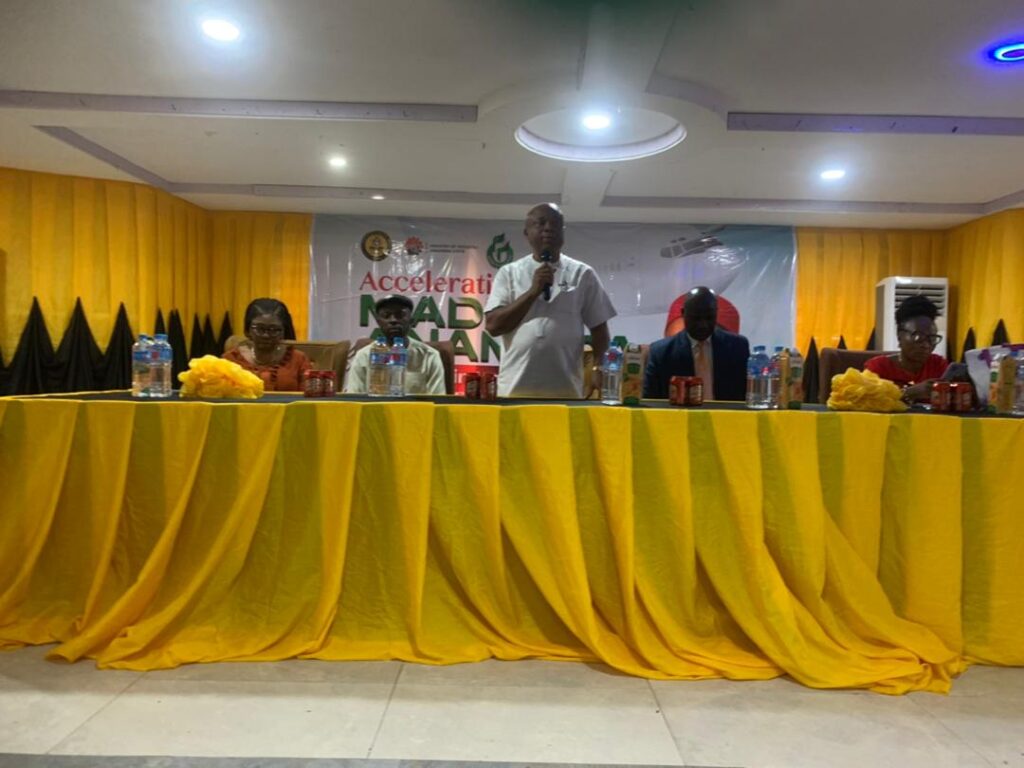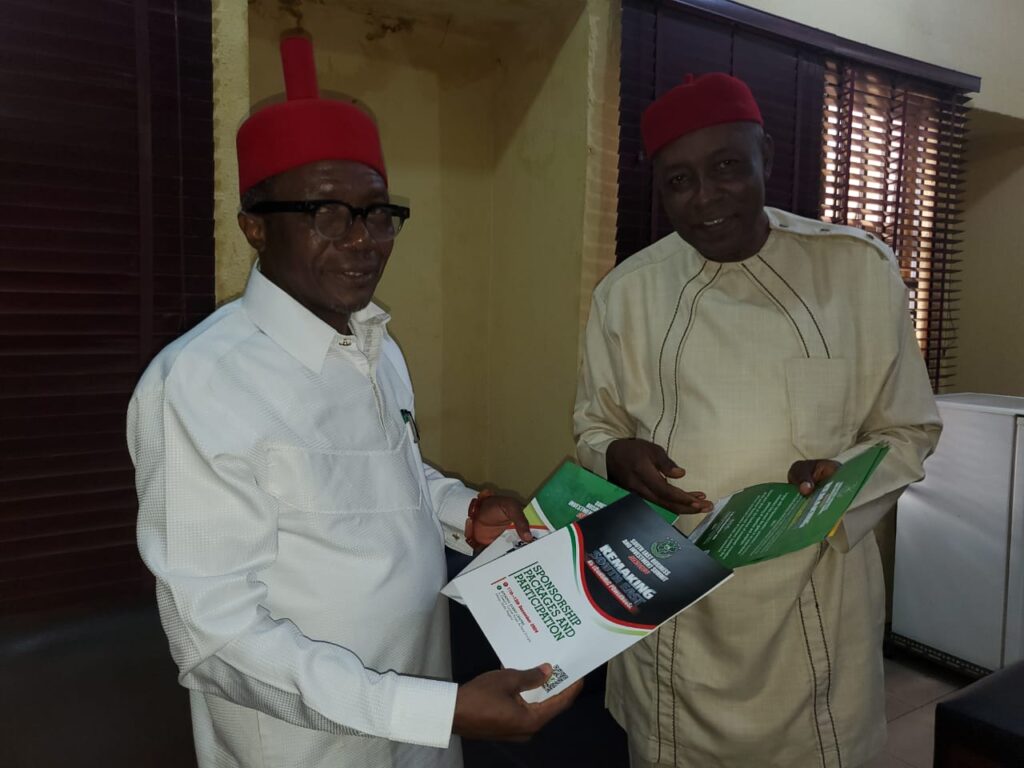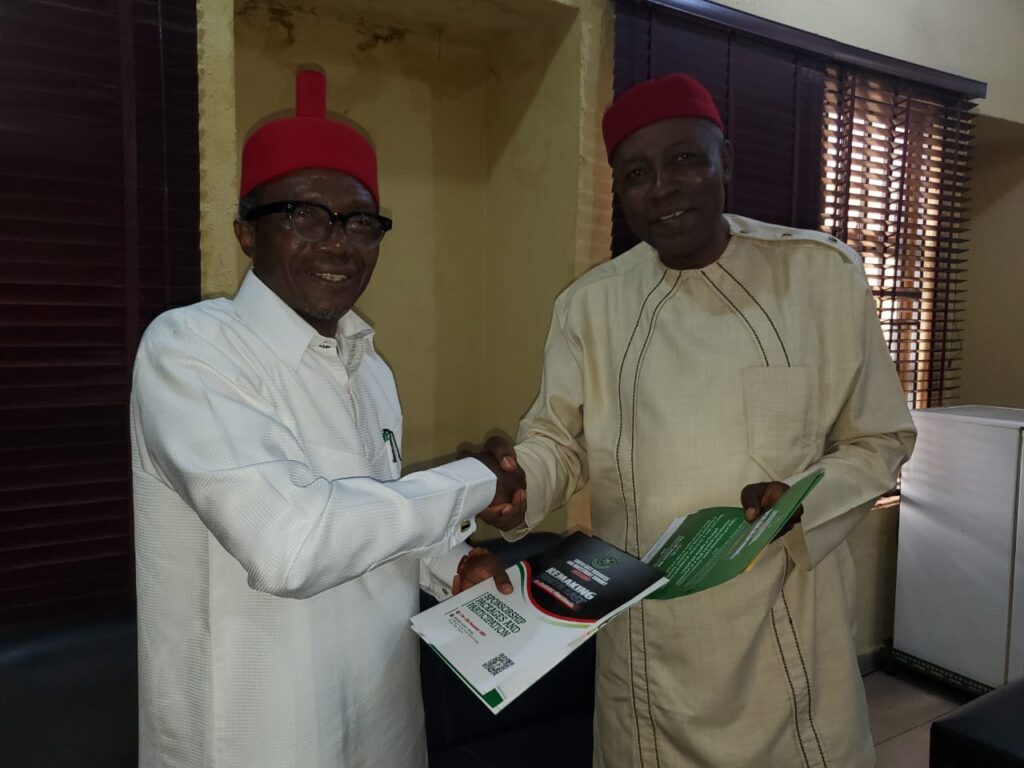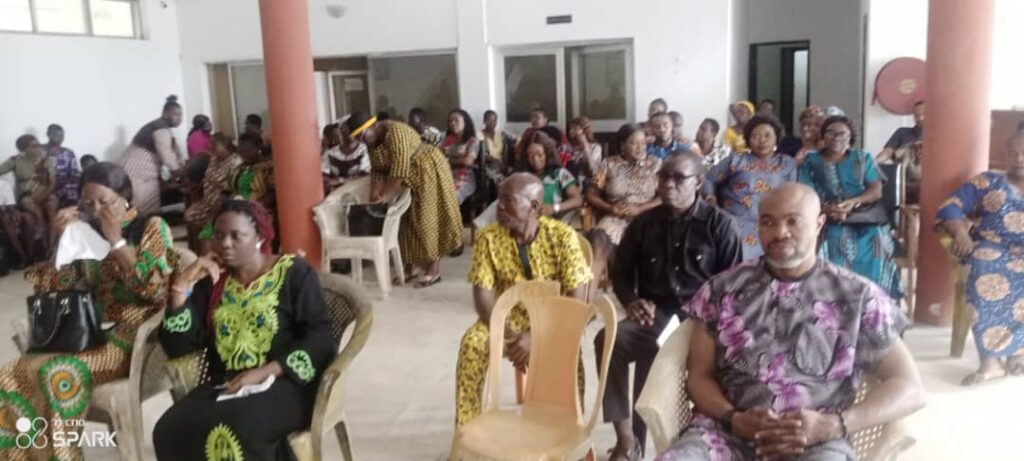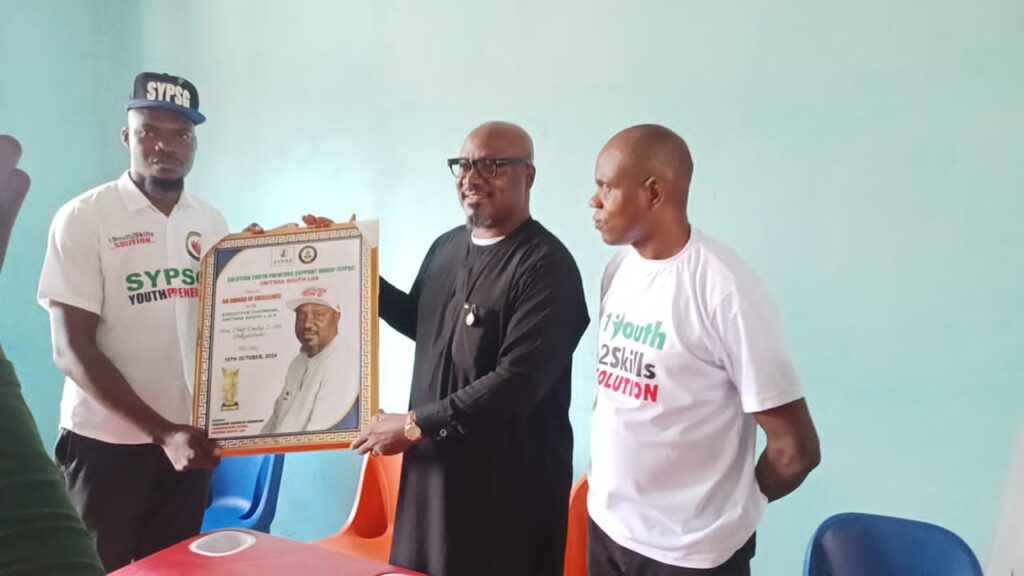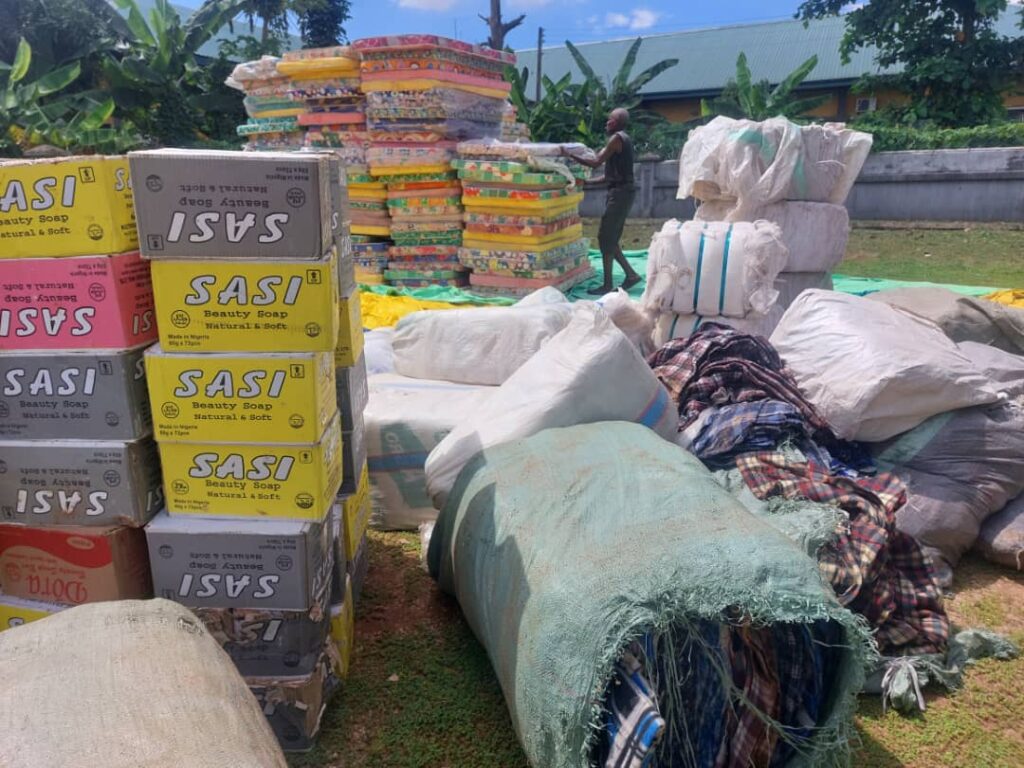VP COMMUNITY SECONDARY SCHOOL OKO EXTOLS SOLUDO ON FREE EDUCATION
By Chioma Ezeiru/ Charity Okechukwu :
The Vice Principal(Administration) Community Secondary School, Oko in Orumba North Local Government Area, Mrs. Joy Okafor, has lauded Anambra Governor, Prof. Chukwuma Soludo on the recent inclusion of Senior Secondary classes in his Free Education initiative in the state.
The Vice Principal made the commendation during an interactive session with information officers in her office at CSS Oko.
According to her, Gov. Soludo is doing wonders in the education sector. He is really the Solution to what parents need now considering the harsh economic situation of the country.
“I no longer see children who should be in school learning hawking or loitering about the streets anymore due to the Solution government’s free education program from kindergarten to the Senior Secondary Schools in the state.
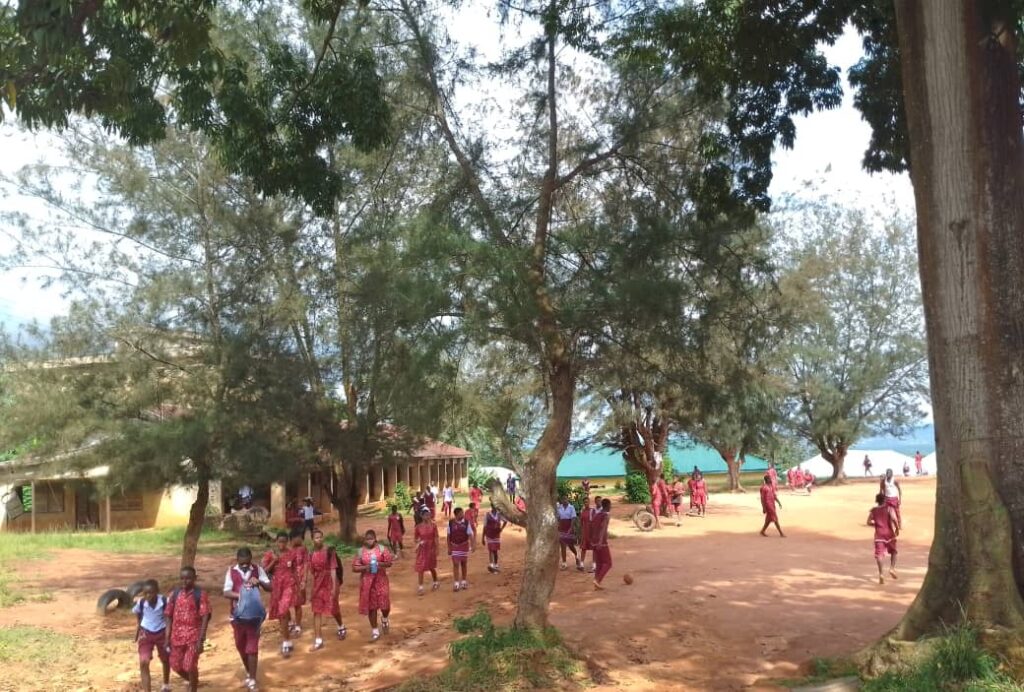
“It is a great encouragement to us and parents. His Free Education Policy has tremendously helped many parents who are not only indigenes of Anambra State. Every Nigerian and even Non-Nigerian resident in the state is benefiting from his magnanimity.
“Parents are now happily bringing their wards and children to school. It has helped students to return back to school. Those that ran away because of school fees and burden of fees are now coming back to school and going off the streets,” she noted.
She said that the state government’s free education initiative has caused an upsurge of students coming into the school.
“Prior to the introduction of Free Education, we had only three classes(A to C) in our JSS3 and SS1 classes. But now, we are heading to five classes (A to E) due to the increase of students and high response of parents to the Free Education by Gov. Soludo.”
Mrs. Okafor further noted that the state government has done well in terms of equipping and revitalizing public schools in the state.
“The Solution governor through his efforts, is building and repositioning public schools in the state to global standard. About two weeks ago, all the heads of public schools in the state were invited to Awka by the state government and given Physics, Chemistry, Biology and other science equipment for their schools.
“Another great achievement of Gov. Soludo in the educational sector is the employment and deployment of qualified teachers to all the public schools in the state.
“By so doing, he has effectively solved the problem of lack of qualified teachers in our school. Before, we had less than 20 teachers but now, we have about 41 qualified and capable teachers. No more PTA and Auxillary teachers,” she emphasized.
However, the Vice Principal called on the state government and well meaning individuals of Oko community to help them in constructing a proper perimeter fencing round the school as this has posed a huge challenge and insecurity to the school.
“We need perimeter fencing in the school. This is our major challenge. It has affected us so much in the area of controlling our students and security of school properties.
“Many school properties have been stolen and vandalized by intruders who come into the school anyhow because every corner of the school is open and accessible. We, therefore, call on the state government and well to do individuals in the community to help us in combating the insecurity in our school.”
Also, the Senior Prefect of the school, Akpan Chidiebere Israel, expressed gratitude to Gov. Soludo for the Free Education implementation in the state, describing it as a great opportunity provided mostly for intelligent students who hitherto could not afford their school fees.
“Gov. Soludo is really the Solution. He brought solution to the problem of students and even to those children in the village who have not seen the four walls of a school, but can now access Free Education even to their syenior Secondary School classes. All thanks to Prof. Soludo who made their dreams come through,” he said.
*Chioma and Charity are of the Ministry of Information, Anambra State
